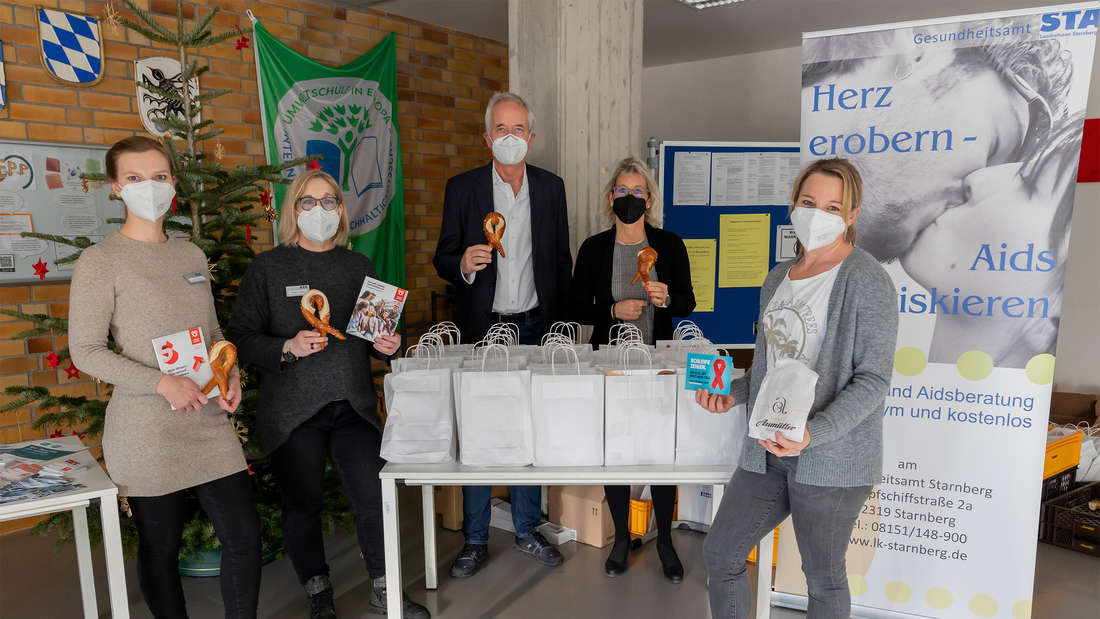Region – After AIDS was recognized internationally as a separate disease on December 1, 1981, this day is remembered for more than 30 years for people who died as a result of HIV and AIDS. In addition, the day must address prejudices and work more towards teamwork.
Starnberg Health contributes to this through various campaigns based on a wealth of experience from over 30 years of AIDS counseling and prevention. In order to once again draw more attention to the topic, the Starnberg Health Department is carrying out several campaigns this year. On World AIDS Day, Umöller Bakery distributed 400 bags and pastries in the shape of an AIDS ribbon to students at the Starnberg Vocational School. District Manager Stefan Frey: “Even if AIDS is no longer on everyone’s lips, other diseases shape current events. Education, prevention, living with the disease as well as how society deals with it and interact with each other is still something new on the topic, now and then. and the other.”
But this is not the only measure. Until December 3, there is an information booth with educational materials at the district office and at the Health Department. In addition, about 500 bags with informational materials were packed and distributed to central asylum shelters in the Starnberg region.
About 38 million people worldwide are infected with HIV, 25% of whom do not have access to medication. Resulting in the deaths of 680,000 people worldwide in 2020 alone due to the consequences of AIDS. South Africa is particularly hard hit. In Eastern Europe and Central Asia, the number of infections has increased in recent years. About 90,700 people live with HIV in Germany, about 10,800 of whom are unaware of the infection and receive no treatment. The result is that around 1,000 people in Germany still become infected each year.
The coronavirus pandemic has weakened preventive measures against HIV and AIDS. Contact restrictions have led to decreased testing willingness for HIV tests and, in many countries, a sharp decline in diagnoses. The supply of medicines had to be restricted or even interrupted in some cases.
As in the past few years, the district office displays a ring on the homepage www.lk-starnberg.de and on a banner on Münchner Strasse in the district office. The goal of the campaign is to reduce bias and openly address the topic of sexually transmitted diseases. More information can be found at www.welt-aids-tag.de. Materials for your solidarity campaigns can be downloaded and ordered there.

“Alcohol buff. Troublemaker. Introvert. Student. Social media lover. Web ninja. Bacon fan. Reader.”






More Stories
“Time seems to cure long Covid.”
Science: The use of artificial intelligence is changing the way hospitals operate
Simple recipe: sweet cream cheese slices from the tray